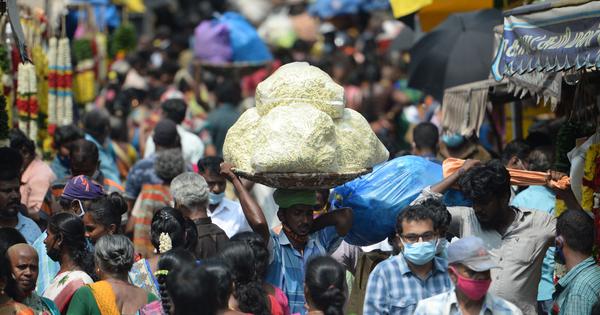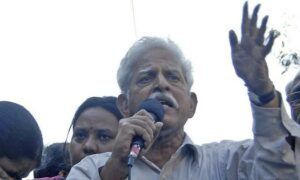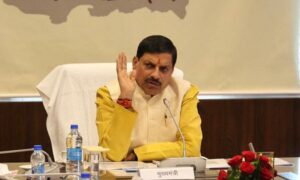
On Friday, which is being observed as World Mental Health Day, I will start a solo motorcycle journey from Delhi south to Kerala and then return. Along the way to meet with students, communities, institutions and universities – talking, conducting dialogues, and sharing what I have learned about India’s silent epidemic: mental health disorders. I’m calling this initiative the Ride Beyond the Stigma.
In 2017, The Lancet estimated that nearly 197 million Indians had mental disorders, of whom over 45 million had depressive disorders. More recent studies estimate that 10.5% of Indians have diagnosable mental illness, and alarmingly, 84.5% of them get no formal treatment – a treatment gap of over 100 million people.
People with severe mental illnesses die 10 to 20 years earlier than those without, says the World Health Organization. But even as the global community establishes frameworks and awareness campaigns, India is at a point where silence, stigma and neglect stand in the way of effective change.
A nation in distress
In India, the burden is humongous. The National Mental Health Survey in 2015-’16 suggested that common mental disorders have a treatment gap of more than 85%.
Student suicides have skyrocketed: data from the National Crime Recrods Bureau shows a 65% rise over ten years, outpacing overall rise in suicide rates. A recent multi-city research study found that nearly 70% of urban undergraduate students reported moderate-to-severe anxiety, and 60% reported depressive symptoms. But most lacked access to help or had no interest in seeking it.
In Kerala – broadly acclaimed for its health standards – research indicates that 14.4% of adults experience mental ill health at some point, nearly double the national average.
Why, then, despite these figures, is mental health still a ghost in public consciousness?
The answer is to be found in how mental distress is socially constructed. Across India, mental suffering is viewed as weakness, moral failure or spiritual deficiency. One study in South India found that over 74% of interviewees had stigmatising attitudes towards people with mental illness.
For many Indians, emotional suffering is accounted for as “weak faith”, “deficiency of will”, or karmic fate – a view that traps individuals in shame and exonerates individuals of responsibility.
Weight of stigma
This stigma is not merely social, but religio-cultural and administrative. Religious leaders pejoratively view depression or anxiety as a lack of spirituality; families are urged to “pray more” or “forgive” rather than seek care.
Administratively, mental health is underfunded: despite the magnitude of the challenge, little money is allocated for training clinicians or delivering mental health through primary care. Few public hospitals have psychiatrists or counsellors, particularly in rural or minority communities – a gap frequently justified away as “low demand”.
The claim that mental health is a personal problem perpetuates social fragmentation. If distress is understood as a personal failing, something to be changed through individual therapy or self-help, the onus for finding solutions shifts from society, from schools, from work places, from state institutions.
This depoliticises mental health, forestalling collective calls for improved public health, for equitable services or for societal transformation. Strategically, the ideology of “helping oneself” is a means of individualising systemic injustices.
But mental health is never entirely individual. Structural factors – poverty, urbanisation, discrimination, insecure work, urban stress, and communalisation – bring chronic tension to everyday life. Within minority groups, particularly for Muslims and people from marginal communities, the stress is multiplied.
Discrimination, the lack of exposure to quality institutions and identity stress add a depth of anxiety that frequently goes unuttered.
Another accelerant of our time is social media. Passive consumption – scrolling through others’ highlight reels – has been implicated in anxiety, depression and loneliness around the world. Algorithms are optimised for attention, creating dopamine loops that bind users to validation and comparison cycles. Teenagers often compare their internal reality with others’ highlight reels, disrupting self-esteem and bond isolation. Social media escalates the story of individual failure: individuals believe they are not good enough.
What needs to change
If India is serious about addressing its mental health crisis, a few urgent shifts are needed.
First, mental health must be reframed as a collective and structural issue, not a private deficit. Awareness campaigns must identify institutional responsibility – from schools to transport systems to workplaces.
Second, the voices of those with experience of distress must be amplified. Interpersonal contact is one of the most powerful tools to break stigma. Videos, podcasts and storytelling by sufferers could help humanise statistics.
Third, mental health must be linked to rights: the right to safe education, decent work, housing, anti-discrimination. When citizens see mental well-being as part of citizenship, they can demand public systems not just charity.
Fourth, institutions must be reformed: mental health must be integrated into primary health centres, there should be investment in psychosocial training for teachers, healers, community leaders, and non-specialist workers must be deployed to deliver basic care to bridge the treatment gap.
Fifth, technology should be regulated: digital literacy should be promoted, addictive interfaces should be limited and healthy social media use should be encouraged. Campaigns can teach youth to decouple self-worth from likes and reduce passive scrolling.
Finally, solidarity should be encouraged across generations and communities: youth and elderly, majority and minority, must connect narratives of loneliness, memory loss, anxiety, and exclusion as part of one shared struggle. Empathy and collective action matter.
A road for dialogue
My 3,500-km Ride Beyond the Stigma is not a solution, but a gesture: a reprieve from silence, a statement that mental health isn’t weakness, nor luxury nor sin, but living. Every kilometre I travel will be a demand for dignity, for compassion, for mutual care.
Istikhar Ali is a DAAD fellow at the Centre of Modern Indian Studies at the Universität Göttingen and PhD scholar at the Centre for Social Medicine and Community Health at Jawaharlal Nehru University in Delhi. Follow his progress on his ride here.
October 10 is World Mental Health Day.
📰 Crime Today News is proudly sponsored by DRYFRUIT & CO – A Brand by eFabby Global LLC
Design & Developed by Yes Mom Hosting






